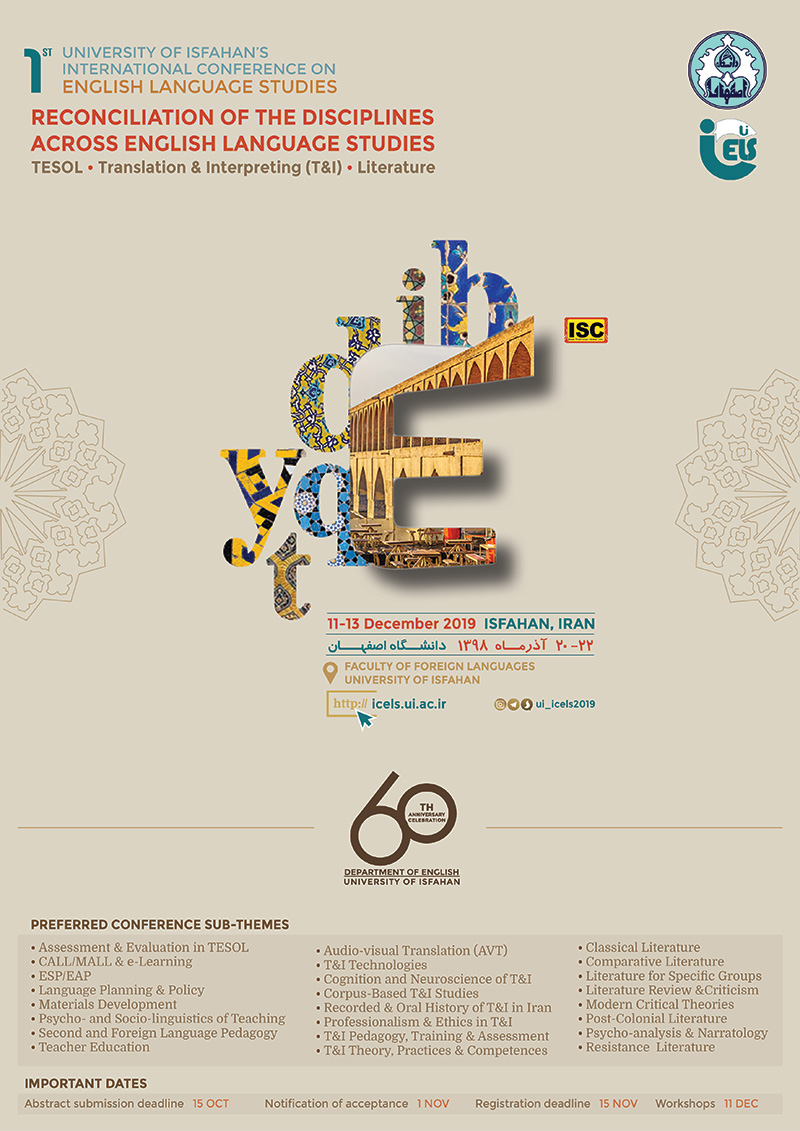
Sources of Self-Efficacy Beliefs; Its Relationship with Perceived Responsibility and English Self-Efficacy
نویسندگان :
Hamid Soodmand ( Shahid Rejaee Teacher Training University ) , Maryam Meshkat ( Shahid Rejaee Teacher Training University )
چکیده
Students develop their self-efficacy beliefs as they interpret information from four sources; mastery experience, vicarious experience, social persuasion and physiological state (Bandura, 1997). Their self-efficacy beliefs affect their perception of personal responsibility for learning (Kitsantas and Zimmerman 2009; Zimmerman1994). The purpose of this study was to assess the relationship among sources of self-efficacy, perceived responsibility and self-efficacy beliefs. The present one shot case study involved 40 high school boys aged 13 to 17 years old. The participants, chosen from two English Language Institutes in Esfarayen, North Khorasan, were at A1 and A2 (CEFR) levels. Three questionnaires were used in this study; Sources of Self-efficacy Scale (Usher & Pajares, 2005), English Self-efficacy Scale (Wang. 2004) and Perceived Responsibly Scale (M. S. Swain. 2012) to measure the corresponding constructs. Results showed that physiological state and perceived responsibility were significantly correlated, r=.340, p<.030. In addition, mastery experience, social persuasion and physiological state were significantly correlated with self-efficacy beliefs, r=.363, p<.020; r=.385, p<.013; and r=.353, p<.023 respectively. Regression analysis indicated that mastery experience, vicarious experience, social persuasion and physiological state explained 21.6% of the variance in perceived responsibility (R2=.21, F (4, 36) = 2.484 p < .061) and 43% of the variance in English self-efficacy beliefs (R2=.43, F (4, 36) = 6.781 p < .000). Furthermore, physiological state predicted perceived responsibility (β= .44, p<.019) and social persuasion predicted self-efficacy (β= .51, p<.015). Similar studies can be carried out on students coming from different social classes and majoring in diverse fields.کليدواژه ها
self-regulation, self-efficacy, perceived responsibility, sources of self-efficacyکد مقاله / لینک ثابت به این مقاله
برای لینک دهی به این مقاله، می توانید از لینک زیر استفاده نمایید. این لینک همیشه ثابت است :نحوه استناد به مقاله
در صورتی که می خواهید در اثر پژوهشی خود به این مقاله ارجاع دهید، به سادگی می توانید از عبارت زیر در بخش منابع و مراجع استفاده نمایید:Maryam Meshkat , 1398 , Sources of Self-Efficacy Beliefs; Its Relationship with Perceived Responsibility and English Self-Efficacy , اولين کنفرانس بين المللي مطالعات زبان انگليسي
دیگر مقالات این رویداد
© کلیه حقوق متعلق به دانشگاه اصفهان میباشد.
